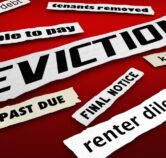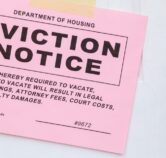BY JANET HOWARD
Many people don't realize that the law restricts the ability of a landlord to enter a tenant's home or apartment. Laws vary by state, but landlords usually need to notify a tenant ahead of time before scheduling an inspection or entering to make repairs. Only in emergencies are landlords typically allowed to enter a rental unit without providing advance warning. Before someone becomes a landlord, they should develop a good working knowledge of the laws and ordinances that govern tenant privacy.
Background
In the United States, there is the common law principle of "the right of quiet enjoyment." This gives tenants the right to live in rented housing as the sole occupants. A landlord, or people working for the landlord, cannot just come and go as they please; they must follow state and local laws regarding entering rental property.
Reasons for Entry
State and local landlord-tenant laws define the reasons why a landlord can enter a rental unit as well as whether the landlord must give advance notice to the tenant. Typical reasons why a landlord may be permitted under the law to enter a renter's home include:
- Inspections: Some jurisdictions give landlords the right to schedule inspections to make sure that the rental property is in good condition and to address potential problems before they become costly to repair.
- Repairs: If a landlord becomes aware of the need for repairs or the tenant requests that repairs be made, the landlord is allowed to enter the rental unit.
- Abandonment: Occasionally, tenants simply move out of a rental property without informing the landlord. If the landlord has good reason to believe that a tenant has abandoned the property, the law often gives the landlord the right to enter and clean out the property so that it can be re-rented to someone else.
- Emergency: If a landlord has reason to believe that a dangerous condition exists in the rental unit, such as frozen pipes or fire, the landlord usually can enter the unit to identify and address the problem.
Providing Notice
The law often requires landlords to provide tenants with advance notice of the landlord's plans to enter the tenant's home. The notice may be written or verbal, and the law may also require a waiting period before the landlord can enter the unit. The tenant may also be able to ask the landlord to reschedule the visit to a time more convenient to the tenant.
Lease Terms
In some cases, a tenant's lease may specify the conditions under which a landlord can enter the rental. It's important to note, however, that lease terms cannot provide fewer protections than those provided by the law. For example, if the law states that a landlord must provide tenants with a 24-hour written notice before entering, a valid lease cannot state that the landlord only has to give 12-hours. Clauses that violate state and local laws can invalidate the lease.
Legal Remedies
Both landlords and tenants usually have legal remedies in cases where one partybreaks the law or lease terms regarding landlords entering the rental unit. For example, a landlord may be able to sue and/or terminate the lease of a tenant who refuses to allow the landlord into a rental. Conversely, a tenant may be able to sue the landlord or terminate their lease if the landlord enters the rental unit without following proper procedures. If the tenant wishes to stay in the rental unit, he or she may even be able to get a restraining order against the landlord.
Getting Help
Landlords and tenants who have questions about a tenant's right to privacy in a landlord's right to enter a rental unit should seek attorneys who handle landlord-tenant issues and can advise clients about their rights and the best way to handle their situation. Understanding legal rights and responsibilities improves landlord-tenant relationships. Both property owners and renters should review state laws so that they understand when a landlord can enter a property and how he or she needs to notify the tenant of an upcoming visit.
If you have a landlord or tenant issue, please do not take the law in your own hands. Get a FREE consultation. Ask the Lawyer. Call 855-768-8845.






